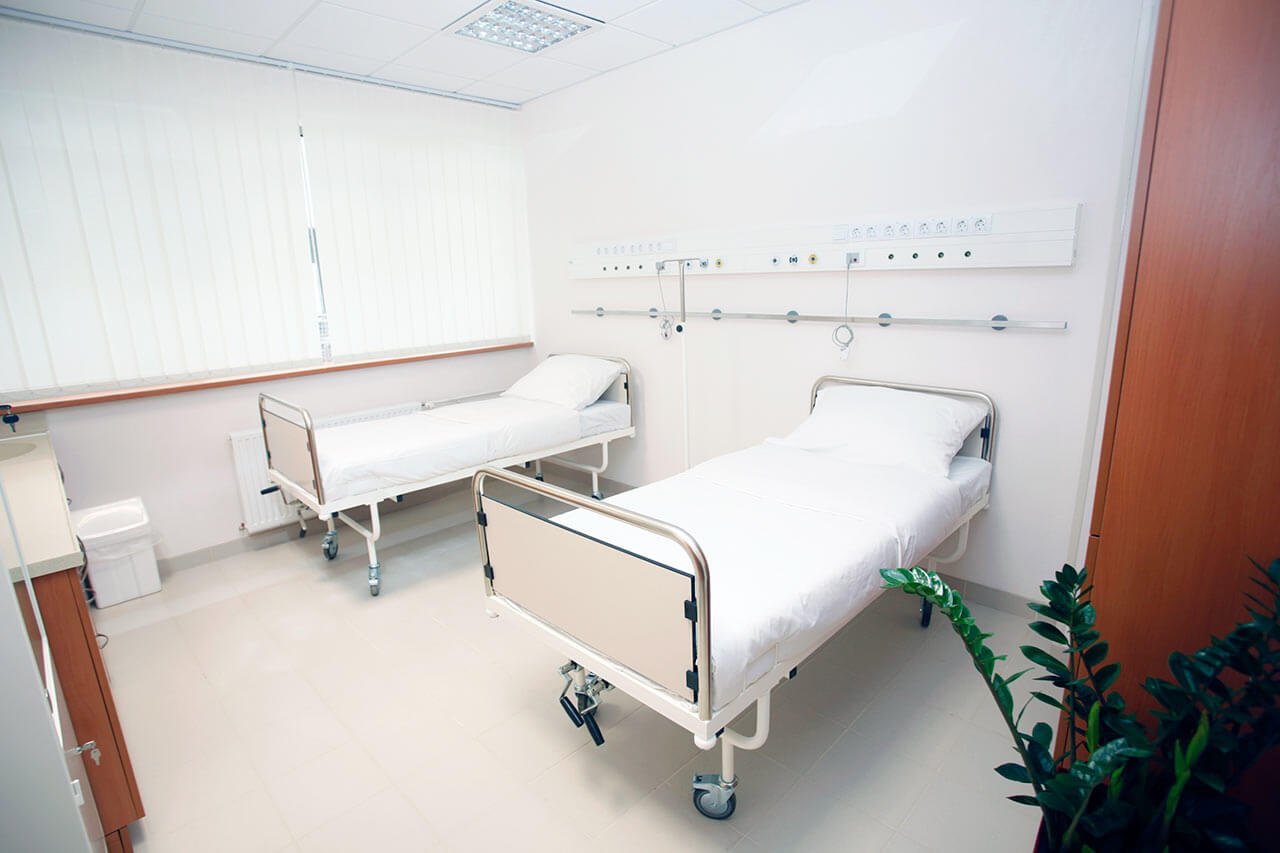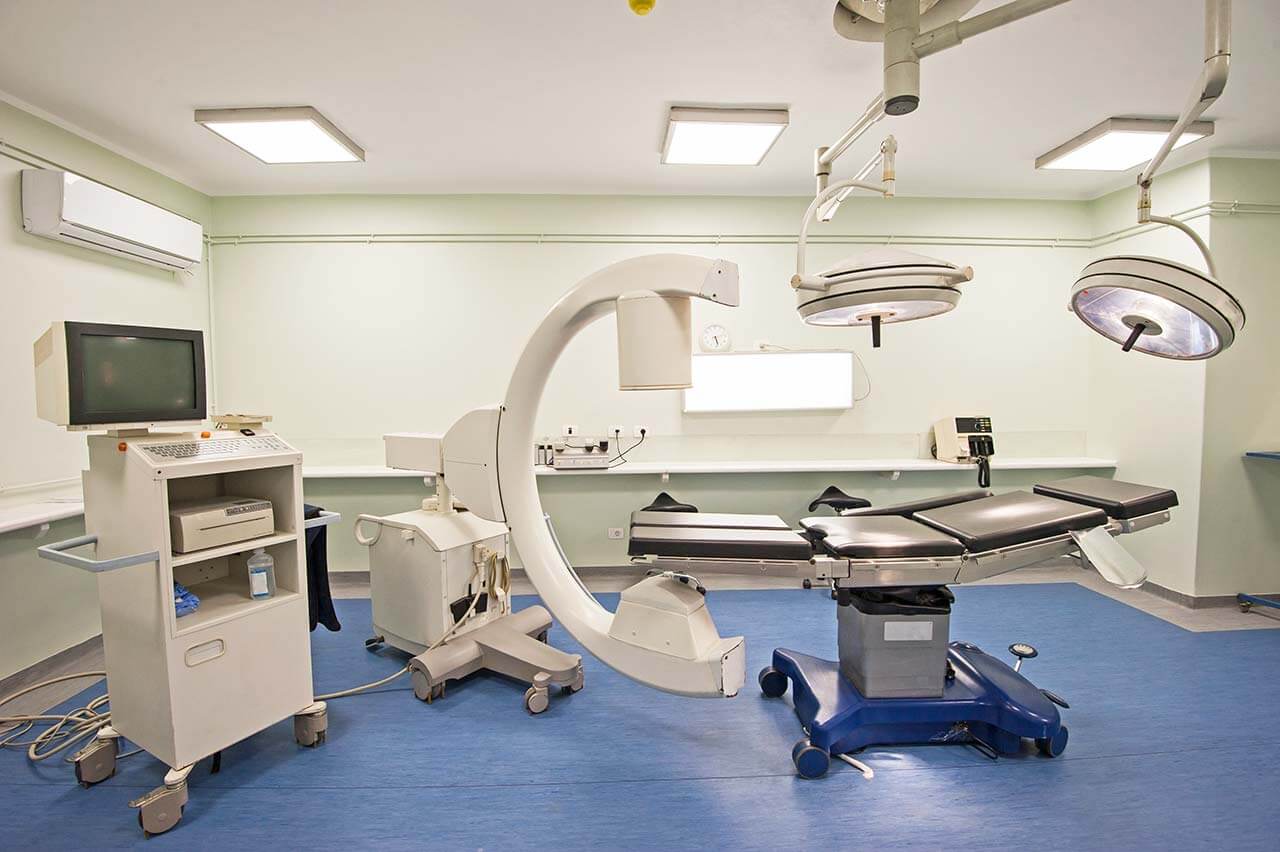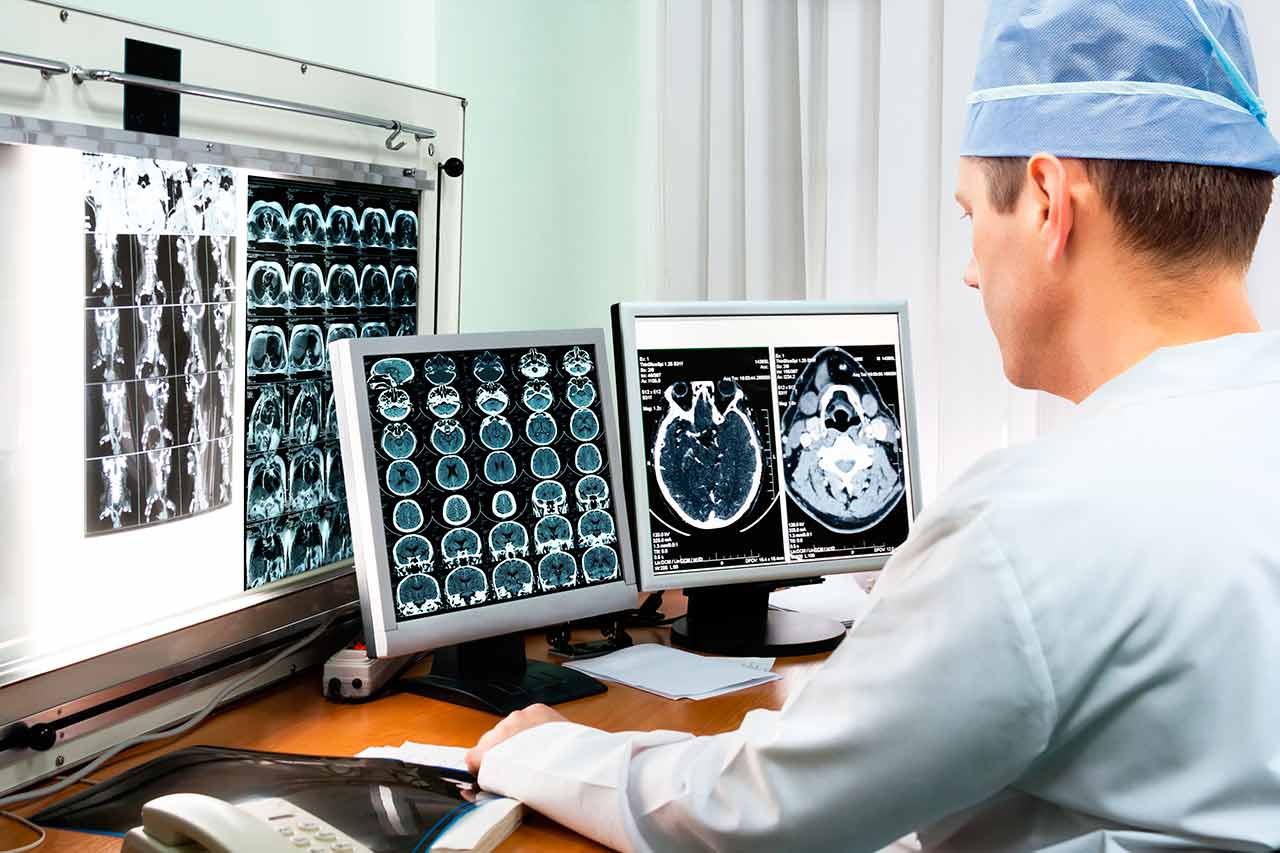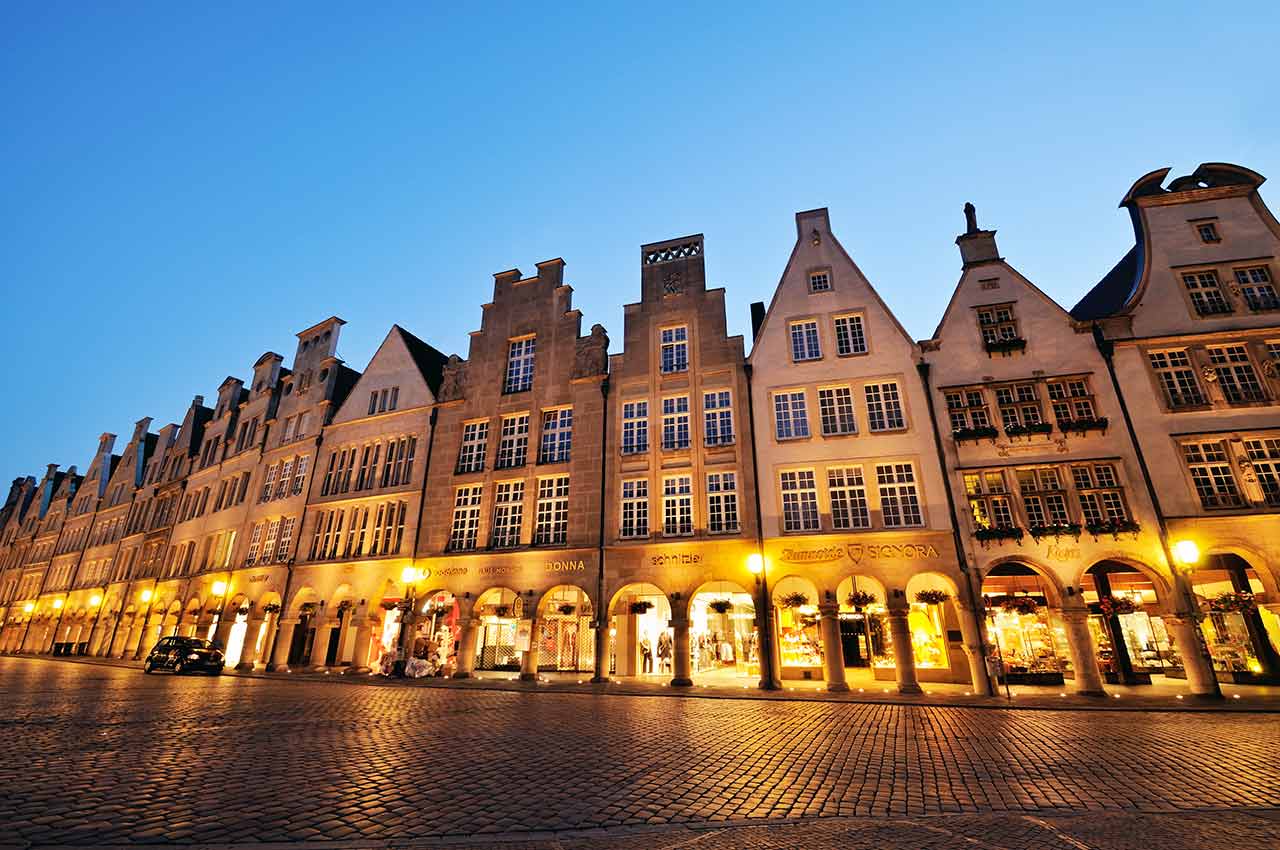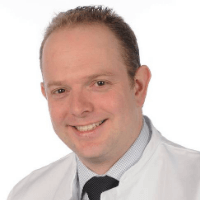
The program includes:
- Initial presentation in the clinic
- clinical history taking
- review of medical records
- physical examination
- laboratory tests:
- complete blood count
- general urine analysis
- biochemical analysis of blood
- blood smear
- TSH-basal
- inflammation indicators
- indicators blood coagulation
- CT scan of full body
- ultrasound of spleen
- immunophenotyping of lymphocytes
by flow cytometry - cytogenetic analysis with standard
karyotyping - cytogenetic analysis for philadelphia
chromosome detection - aspiration biopsy of bone marrow
- chemotherapy and immunotherapy (1 curse)
- symptomatic treatment
- control examinations
- cost of essential medicines and materials
- nursing services
- full hospital accommodation
- explanation of future recommendations
Required documents
- Medical records
- MRI/CT scan (not older than 3 months)
- Bone marrow biopsy results (if available)
Service
You may also book:
 BookingHealth Price from:
BookingHealth Price from:
About the department
The Department of Hematology, Hemostaseology, Oncology and Pulmonology at the University Hospital Muenster offers the full range of diagnostics and treatment of blood diseases, including oncopathologies and blood coagulation disorders, lung diseases, and rare malignant diseases. The department incorporates two modern Bone Marrow Transplantation Centers. In addition, the department belongs to the largest medical facilities in Germany, which specialize in the treatment of malignant lymphomas, acute leukemias, sarcomas, as well as bone marrow transplantation. The physicians of the department are committed to providing patients with the comprehensive medical care of the highest quality, based on the respective attitude towards patients. The Chief Physician of the department is Prof. Dr. med. Georg Lenz.
One of the key focuses of the department is bone marrow transplantation. This procedure has been carried out here since 1999, therefore, the department’s specialists are proud of their exceptional experience in this field. The department was the first in Germany to receive the prestigious JACIE certification, which confirms the highest medical standards of the European level. The specialists of the department perform more than 150 bone marrow transplantations in adults annually, while ensuring the best possible safety for patients. The bone marrow transplantation is indicated in case of diseases, such as acute and chronic forms of leukemia (AML, ALL, CML, CLL), myeloproliferative diseases, lymphomas, including Hodgkin's lymphoma, severe aplastic anemia, multiple myelomas, etc.
Another, but not less important department’s clinical focus is the treatment of oncological diseases. The therapeutic options in this field comprise all modern and the most effective methods. These include conventional types of chemotherapy, immunotherapy with checkpoint inhibitors, targeted therapy of tumors with monoclonal antibodies and small molecules, combined chemoradiotherapy (for example, in the case of lung cancer). In addition, the patients of the department can participate in clinical trials of the most advanced drugs, which can show a positive dynamics even in the most complex and severe clinical cases. The service range is complemented by palliative care, which is used to relieve pain and improve the quality of life of patients, psycho-oncological support, which helps patients to cope with the emotional upheaval and maintain a positive attitude throughout the entire therapeutic process.
In the field of hemostaseology, the physicians of the department provide the diagnostics and treatment of all blood coagulation disorders, which can lead to complex, and, in some cases, irreversible consequences, if not treated timely.
The pulmonologists of the department specialize in the treatment of a broad range of lung diseases and pathologies of other organs affecting the lungs. When treating cancer, the department maintains close cooperation with the experts from related specialties (within the framework of the interdisciplinary tumor boards), which allows them to develop optimal treatment strategies tailored to the specific clinical indications. In the clinical practice, all means of flexible and rigid endoscopy are actively used both for diagnostic and therapeutic purposes, as well as pleural drainage, right heart diagnostics, and ultrasound-guided biopsy.
The department’s range of services includes:
- Diagnostics and treatment of malignant hematological diseases and oncopathologies of the internal organs
- Therapy
- Chemotherapy to treat all types of cancer (both on an inpatient and outpatient basis)
- High-dose chemotherapy
- Immunotherapeutic methods, for example, the administration of immunoglobulin in the case of autoimmune diseases or immunoglobulin deficiency, administration of antibodies in the case of tumor diseases
- Targeted therapy, novel means of molecular therapy, for example, the administration of Imatinib in the case of chronic myeloid leukemia
- Combined chemoradiotherapy
- Treatment within the framework of clinical trials
- Palliative care
- Psycho-oncological support
- Diagnostics
- Bone marrow biopsy
- Spinal fluid biopsy
- Therapy
- Diagnostics and treatment of benign blood diseases and blood coagulation disorders (for example, thrombosis)
- Diagnostics and treatment of lung diseases with a special focus on:
- Alpha-1-antitrypsin deficiency
- Immunodeficiency states associated with lung diseases
- Interstitial and rare lung diseases
- Cancer of the lungs and other thoracic organs
- Conditions before and after lung transplantation
- Pulmonary arterial hypertension
- Other diagnostic and therapeutic option
Curriculum vitae
Education and Professional Career
- 2002 - 2005 Assistant Physician in the Department of Hematology and Oncology, Grosshadern Hospital, Ludwig Maximilian University of Munich.
- 2005 - 2009 Postdoctoral Fellow in the Laboratory of Dr. Louis Staudt at the National Cancer Institute, Bethesda (USA).
- 2009 - 2014 Professor of "Molecular pathogenesis of malignant lymphomas" at the University Hospital Charité Berlin.
- 2012 - 2013 Senior Physician in the Department of Hematology, Oncology and Tumor Immunology at the University Hospital Charité Berlin (Campus Virchow Hospital).
- 2013 - 2014 Head of the Department of Hematology, Oncology and Tumor Immunology at the University Hospital Charité Berlin (Campus Benjamin Franklin).
- 2014 - 2017 Head of the Department of Translational Oncology at the University Hospital Muenster.
- Since 08.2017 Head of the Department of Hematology, Hemostaseology, Oncology and Pulmonology at the University Hospital Muenster.
Research Focuses
- Investigation of the molecular pathogenesis of malignant lymphomas.
- Identification of new oncogenes in malignant lymphomas.
- Supervision of clinical studies, optimization of the therapy of hematological neoplasias.
Photo of the doctor: (c) Universitätsklinikum Münster
About hospital
According to the Focus magazine, the University Hospital Muenster ranks among the top German hospitals!
The hospital belongs to the most prestigious medical institutions in Germany. The hospital is distinguished by a high professionalism of its doctors, state-of-the-art technological equipment and the availability of the most advanced diagnostic and therapeutic capabilities ensuring the first-class medical services. The hospital integrates more than 30 specialized departments, as well as numerous institutes and centers, thus representing all the specialties of modern medicine. The hospital treats more than 64,000 inpatients and 500,000 outpatients every year, which is an indisputable evidence of the highest quality of medical services.
The medical team of the hospital, consisting of more than 10,000 employers, is committed to preserving the physical health of patients, providing them with psychological support and compassionate attitude throughout the entire therapeutic process.
The hospital has succeeded in all specialties of medicine, however, main areas of its specialization include oncology, treatment of cardiovascular, neurological diseases, transplant medicine, psychiatry and psychosomatics, pediatrics with a special focus on rare diseases in children, traumatology, orthopedics, prenatal medicine, and reproductive medicine. In addition, key importance is given to scientific research and training of medical students, so that the specialists of the hospital make a momentous contribution to the development of medicine as a whole.
Photo: (с) depositphotos
Accommodation in hospital
Patients rooms
The patients of the University Hospital Muenster live in single or double rooms. The rooms are made in bright colors and modern design. Each room has an ensuite bathroom with shower and toilet. The standard room includes an automatically adjustable bed, a bedside table, a table and chairs for receiving visitors, a telephone and a TV. The hospital offers access to the Internet. If desired, the patient can also stay in the enhanced-comfort room.
Meals and Menus
The patients of the hospital are offered a tasty and balanced three meals a day: breakfast, lunch and dinner. The menu always features diet and vegetarian dishes. If for any reason you do not eat all the food, you will be provided with an individual menu. Please inform the medical staff about your dietary preferences prior to the treatment.
Further details
Standard rooms include:
Religion
Religious services are available upon request.
Accompanying person
During the inpatient program, an accompanying person may stay with you in a room or at the hotel of your choice.
Hotel
During the outpatient program, you can live at a hotel of your choice. Managers will help you to choose the most suitable options.
The hospital offers a full range of laboratory tests (general, hormonal, tests for infections, antibodies, tumor markers, etc.), genetic tests, various modifications of ultrasound scans, CT scans, MRI and PET / CT, angiography, myelography, biopsy and other examinations. Treatment with medications, endoscopic and robotic operations, stereotaxic interventions is carried out here, modern types of radiation therapy are also used. The hospital offers patients all the necessary therapeutic techniques.
- Stereotactic radiotherapy, including intracranial one
- Thulium and holmium laser enucleation of the prostate
- HIPEC for peritoneal cancer
- Imlantation of mechanical heart support systems
- Assisted reproductive technologies
These are arthrosis and sports injuries of the joints, benign neoplasms and malignant tumors of various localizations, spinal injuries, osteoporosis, benign prostatic hyperplasia, urolithiasis, inflammatory bowel disease and other pathologies.
- Traumatology and hand surgery
- Urology
- General and abdominal surgery
- Cardiology and cardiac surgery
- Obstetrics and gynecology
The hospital's team consists of more than 10,000 highly qualified employees.
